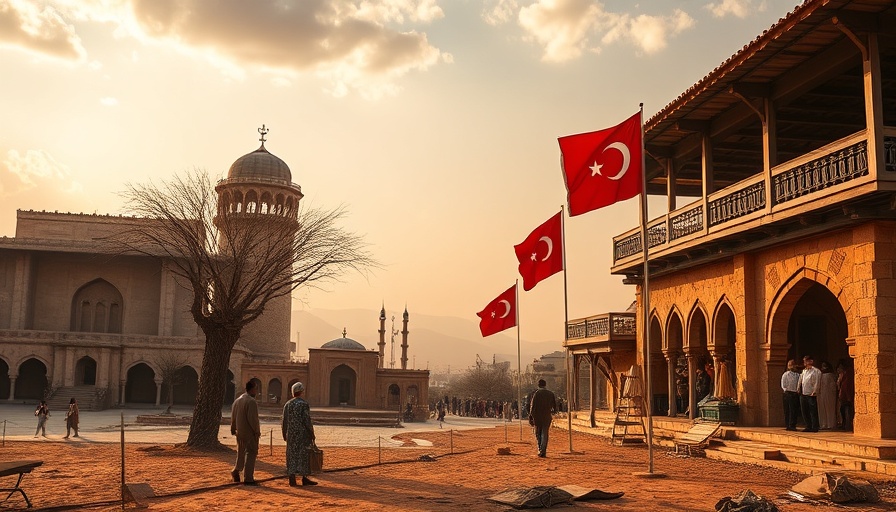
The Growing Influence of Türkiye in Africa
In a significant move showcasing its expanding influence, Türkiye has recently entered into a landmark agreement with Somalia for onshore oil and gas exploration. Turkish Energy and Natural Resources Minister Alparslan Bayraktar proclaimed this agreement as a pivotal step towards strengthening Türkiye's strategic cooperation with Somalia. The Turkish Petroleum Corporation will now conduct seismic surveys and drilling operations in three assigned blocks covering approximately 16,000 square kilometers in the Somali region, marking Türkiye's assertive entry into Africa's energy sector.
Historical Context: Türkiye's Evolving Projections in Somalia
Türkiye's commitment to Somalia dates back more than a decade, gradually transitioning from humanitarian support during a devastating drought to a robust diplomatic partnership. Ankara has established the largest diplomatic presence in Africa on Somali soil, maintaining a military base while taking management roles at the main airport and seaport in Mogadishu. This historical evolution reflects a significant shift in Türkiye's strategic interests from purely humanitarian aid to energy-rich partnerships.
Security and Educational Ties: Building a Strong Foundation
The bilateral relationship extends beyond energy. Türkiye has contributed heavily to Somali education by offering hundreds of scholarships to students in Turkish institutions and training Somali security forces. This multifaceted engagement not only fosters goodwill but also positions Türkiye as a critical ally in the region, helping build Somalia’s internal capacity and sustainability.
Diverse Perspectives: Challenges and Opportunities
Despite the growing ties, some African leaders caution against over-reliance on foreign support, urging for the establishment of governance traditions to ensure sustainable relationships. Omar Alieu Touray, President of the Gambian National Assembly, emphasizes the importance of local ownership in peacebuilding initiatives. This perspective underlines a broader truth; external partnerships, like that of Türkiye's, should complement internal governance structures and respect the agency of African nations.
Future Predictions: Implications for Africa's Geopolitical Landscape
The Antalya Diplomatic Forum held recently underscored Türkiye's intent to be a significant player in African affairs. With various African leaders in attendance, including Sudan's military leader, the discourse on diplomacy echoing at this gathering signifies Türkiye's ambitions. As more countries look towards Türkiye for partnership, significant implications await for the African geopolitical landscape, driving potential shifts in trade practices and alliances.
In light of these developments, it is evident that Türkiye's investment in Somalia represents not just an economic venture but a long-term strategic partnership that could redefine Africa's energy landscape and international relations. As such, business leaders, policymakers, and researchers alike should monitor these trends closely, as they carry ramifications for the global economy and governance in the region.
 Add Row
Add Row  Add
Add 


Write A Comment